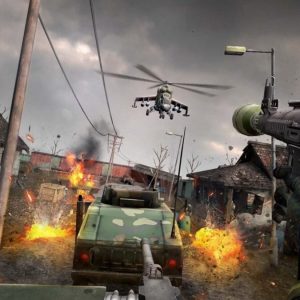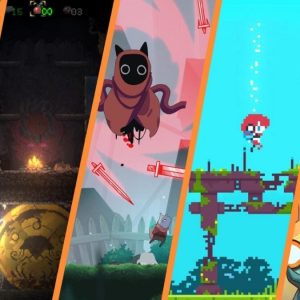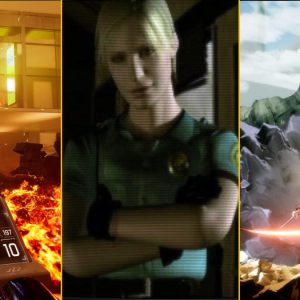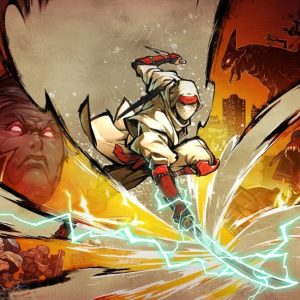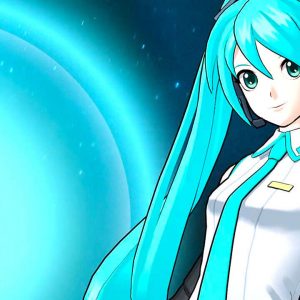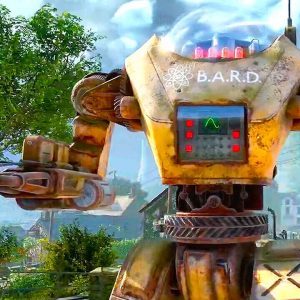Shin Megami Tensei V: Vengeance is finally here! Branded by developer ATLUS as the “definitive” version of the game, it promises to expand on the original with iterated mechanics, new characters, and a new storyline that revolves around the Qadištu faction; which consists of demonic women who, depending on who you ask, are either evil or are wrongfully scorned by society. This game seems to be an expansion at all costs, though, as ATLUS is delisting the original Shin Megami Tensei V from the Nintendo eShop on June 13th. This has left many questioning ATLUS’s penchant for releasing enhanced versions of their games and if they’re always good enough to merit the soft erasure of the original version of the game.
That’s why this article is going to dig into every enhanced version of a game in ATLUS’s discography, and sort them from worst to best for some added fun. ATLUS has a long history of releasing games this way, and there have been both missteps and back steps in crafting rereleases that truly improve upon the base game. By looking at what’s worked and what hasn’t, it’ll become easier to evaluate Shin Megami Tensei V: Vengeance as a new take on the original, rather than assume it’s the new and improved version of the original title.
As a clerical note before kicking this list off, ports from one platform to another do not count as an enhanced edition and will not be included in this list. There has to be a significant material change beyond the device the game runs on for a game to meet the “enhanced” criteria. So the likes of the Etrian Odyssey Origins Collection will not be included here, but the reimaginings of the first two Etrian Odyssey games for the Nintendo 3DS will be discussed.
19. Growlanser (remake)
The Growlanser series of games are a consequence of the Career Soft division of Mayasa Games split away from the Mayasa brand, and partnered with ATLUS to create a spiritual successor to the still ongoing Langrisser franchise. They’re tactical RPGs with a distinctly shojo visual style, and the entire franchise is viewed as a bit of a cult classic by people who are, both, way into anime and tactics games.
The Growlanser enhanced remake for the PSP is at the bottom of this list, though, because it BIZARRELY was never released outside of Japan. Growlanser 2, 3, and 4 were all localized but, in spite of their mixed to favorable reception, the Growlanswer enhanced remake remained a Japan-only title. As there’s no legitimate way to play this title outside of Japan, it can’t be discussed further or evaluated higher.
18. Persona 2: Innocent Sin and Eternal Punishment for the PSP
The Persona 2 duology (treated here as a single entry as this is already a pretty long list) has always been a bit of a black sheep in the Persona series. While segments of the older fanbase love it for its queer themes, catching art direction, and distinct setting; the games never really got
a fair shake outside of Japan.
The original version of the first game, Innocent Sin, was never released outside of Japan; making the second game, Eternal Punishment, the international entry point. This was flipped for the PSP enhanced remakes, though, where the upgraded version of Innocent Sin was available globally but not Eternal Punishment. Honestly, these games are in desperate need of Persona 3: Reload style remakes, and hopefully this lower ranking will encourage that kind of updated release.
17. Etrian Odyssey 2 Untold: The Fafnir Knight
The Etrian Odyssey series is made up of some of the best games around for dungeon crawling sickos. In a similar vein to Square Enix’s Dungeon Encounters, the Etrian Odyssey games heavily prioritize gameplay loops like exploring and mapping dungeons, turn based combat, and managing the economy of running a guild over any kind of narrative. Which is why it’s strange that the enhanced edition of Etrian Odyssey 2 tacks on story mode that detracts from the focus of the original title.
There’s a reason that ATLUS decided to use the base versions of the first two Etrian Odyssey games for the recent Etrian Odyssey Origins Collection, and it’s because the “enhanced” part of Etrian Odyssey 2 Untold: The Fafnir Knight feels more like an ancillary add-on than something that builds upon the game’s strong points.
16. Etrian Odyssey Untold: The Millennium Girl
Everything about the enhanced version of Etrian Odyssey 2 is applicable for the enhanced version of Etrian Odyssey Untold: The Millennium Girl, which also focuses on story content. So, go re-read that first paragraph and a half if you want a quick rundown of why this title is also fairly low on this list.
The Millennium Girl beatus out The Fafnir Knight, though, because this 3DS enhanced edition actually scored a few Metacritic points higher than its original version. Whether this is a statistical quirk or an indication of genuine improvement is unclear, but that’s enough of a reason to rank The Millennium Girl one slot higher than its sequel.
15. Catherine: Full Body
The Catherine series is a bit of a minefield. On the one hand, it’s action-puzzler gameplay, adult cast of characters, and supernatural murder mystery plot make it feel like it was tailor made for older Persona 4 fans. On the other hand, many objected to the casual bigotry levied towards trans characters in the original release, and trans and gender nonconforming characters in the Full Body enhanced edition.
In fairness, plenty of people did find the gender expression of the marginalized characters in both versions of Catherine to be inspiring too. However, this game is also a prime example of ATLUS’s on-again, off-again, “more is better” enhanced edition philosophy; where over-encumbering a game with more story and levels is treated as a superior experience. Bigger, of course, does not always equate to better and this added material detracts from the tighter experience of the original Catherine.
14. Tokyo Mirage Sessions ♯FE Encore
As a crossover between Fire Emblem and Shin Megami Tensei games with a focus on idol culture, Tokyo Mirage Sessions ♯FE is a game made for very specific segment of the gaming audience. Tokyo Mirage Sessions ♯FE Encore does a solid job building upon the original, even if piled on characters and story content can feel like it’s putting a hat on top of a hat.
The US and Japanese release of this game were mired in a bit of controversy, though, which knocks it down a few ranks on this list. Tokyo Mirage Sessions is the source of the infamous “vagina bones” meme, which is both hilarious out of context and still potent shorthand for localization changes around the sexualization of characters. Additionally, all versions of Encore were based on the Western version of the original game, meaning that the more risque content of the Japanese version of the original did not appear in any version of the enhanced edition.
While that content is definitely a weird thing to be left on the cutting room floor, removing material whole cloth definitely works against the idea of an “enhanced” edition of a game.
13. Shin Megami Tensei: Devil Survivor Overclocked
Shin Megami Tensei: Devil Survivor is a tactics based spin-off of the Shin Megami Tensei franchise for the Nintendo DS. Think Persona 5 Tactica, but with an original cast of characters. Shin Megami Tensei: Devil Survivor Overclocked is an enhanced port for the Nintendo 3DS, that adds the compendium mechanic featured in most mainline games, and even adds voice acting!
While these more deliberate and mechanically focused add ons are in the spirit of what make enhanced versions of games worthwhile, they don’t quite work cohesively in Shin Megami Tensei: Devil Survivor Overclocked. In fact, the enhanced version of this title actually has an aggregate review score that’s a few points lower than the original version of the game, so it falls to the bottom half of this list.
12. Shin Megami Tensei: Devil Survivor 2 Record Breaker
The sequel to Devil Survivor, aptly named Devil Survivor 2, also got an enhanced edition in the form of Shin Megami Tensei: Devil Survivor 2 Record Breaker. While this 3DS enhanced edition did mostly boil down to additional content after the original game’s ending, this enhanced edition was reviewed more favorably than its base version. Between this higher critical reception, and the fact that characters from the Durarara!! anime inexplicably appeared as DLC characters in the enhanced edition, Record Breaker narrowly beats out Overclocked on this list.
11. Persona 5: Royal
For as much as Persona 5: Royal is seen as the definitive version of the game that brought mainstream acclaim to the long running series, it actually exacerbates some of the original’s biggest issues. While it’s great to spend more time with Akechi after he outs himself as a lil freak, and Sumire’s storyline is certainly moving; Royal tacks on at least fifteen hours of gameplay to a title that already bridged into a triple digit runtime.
While both Persona 5 and Royal are great games, the pacing and repetitive writing are low points and Royal’s tacked on third semester can make the game feel like even more of a slog. While more of a great video game sounds ideal on paper, it’s not as appealing when most of the additional content doesn’t address underlying issues. I’ve said it before, but when it comes to Shin Megami Tensei games, there’s a difference between “more” and “enhanced” and that’s why Royal is in the middle of the pack in this ranking.
10. Shin Megami Tensei: Strange Journey Redux
Shin Megami Tensei: Strange Journey Redux is a pretty standard enhanced edition as far as ATLUS games go. There are some new demons, quality of life changes, an additional dungeon, and a new character that also brings some new endings. What makes Redux a better than average ATLUS enhanced edition is the timing of its release more than its content, though.
SMT: Strange Journey Redux came to the 3DS a little over a year after the original version of Persona 5, and about seven months after the release of the Nintendo Switch. So not only did it capitalize on the growing interest in the broader SMT franchise, but it also breathed a last bit of life into a sunsetting console. It’s important to remember that “enhanced editions” of games are, on some level, marketing tactics; and Redux deserves props for releasing as interest was peaking and on a ubiquitous piece of hardware about to fall into irrelevancy.
9. Maken Shao: Demon Sword
Maken X is a hack and slash game for the Dreamcast and was also the directorial debut of Katsura Hashino, who would go on to direct Persona 3, 4, and 5. The game also received a manga adaptation by Q Hayashida, the famed mangaka behind series like Dorohedoro and Dai Dark.
While Maken X received a mixed at best reception, the Maken Shao: Demon Sword enhanced edition earns a higher spot on this list by transforming the first person action game into a third person action game. While the enhanced edition doesn’t quite come together cohesively, this change had to be a massive undertaking and offers the kind of refreshed experience that makes enhanced editions worthwhile.
8. Shin Megami Tensei III: Nocturne Maniax
Did you know that the version of Shin Megami Tensei III: Nocturne that most people outside of Japan are familiar with is actually an enhanced version of the game? Dubbed the Maniax edition and often referred to as a Director’s Cut, and included the famed cameo of Dante from the Devil May Cry series. This version of the game also featured the enhanced difficulty that the title, and future SMT games, would become known for.
Is it a little weird to include an enhanced edition that most people know as the default version of the game so high up on this list? Yes, but also Shin Megami Tensei III: Nocturne Maniax got the ball rolling for the slowing growing popularity of the SMT and Persona franchises, so Maniax deserves this recognition and praise.
7. Persona 3: FES
Persona 3: FES is the first enhanced edition of Persona 3, and is the first time a Persona title got this kind of upgrade. Today it can more or less be viewed as the template from which later enhanced editions of their games would draw upon. FES adds story content beyond the ending of the original game, and cleans up a lot of backend technical issues.
While FES is a rock solid foundation from which ATLUS has developed their enhanced game identity, there are better versions of Persona 3 that you can play right now and therefore this game falls a bit short of the top five on this list.
6. Persona 3: Reload
Persona 3: Reload has enough graphical changes and quality of life improvements to make it as much of an enhanced edition as it is a remake of the original game. Also, with ‘The Answer’ content from FES on the horizon as DLC, it’s starting to feel more like a refresh of the enhanced edition than just a remake of the original game. This version of Persona 3 is far and away the easiest way for fans to experience the title that would influence the franchise for more than a decade to come.
That being said, some of the changes in Reload work against the intent of the original game. Reload borrowers the peppier visuals of Persona 5, which undermine the melancholic tone and themes of the original game. This enhanced version makes the game more approachable, but less distinct, and an enhanced version of a game should build a title up rather than squeeze it into a popular mold.
5. Radiant Historia: Perfect Chronology
Radiant Historia was a rock solid turn based role playing game that had the misfortune of releasing internationally in 2011, when global interest in those kinds of games was at an all time low. This means that, despite resoundingly positive reviews, not many played the title; making it a prime candidate for an enhanced edition that could give it another chance to shine.
Perfect Chronology for the 3DS does just that while also adding animation from the famed A-1 Pictures studio, voice acting, and quality of life changes that sped up gameplay. Sure, the new story content felt a bit tacked on, but it’s difficult to pick up on that if you aren’t familiar with the original release. Ultimately, Perfect Chronology does exactly what an enhanced version of a game should; which is to further polish what worked in the original and build upon the momentum of the previous release to take a title to even greater heights.
4. Persona 4: Golden
Persona 4: Golden is one of the best enhanced editions of a game ATLUS has ever made because I can’t think of a single reason why someone should play the base version over this edition. Does the added story content pad out the runtime? Yes, but the game can still be beaten in around 80 hours, which is the sweet spot for these kinds of sprawling RPGs. Golden also adds new cutscenes and character interactions, which is more than welcome for a game that thrives on the quality of its character writing.
Chances are, though, that you already knew that Persona 4: Golden was one of the best enhanced games in ATLUS’s catalog. Even as the Persona 5 games have become the new hotness and many people’s gateway into the franchise, Golden remains the gold standard in which all other ATLUS games are measured.
3. Shin Megami Tensei: Persona for the PSP
The PSP remake of the original Persona game, titled Revelations: Persona on the PS1, is definitely a strange pick for one of ATLUS’s best enhanced editions, but it’s here for good reason. Did you know that only half of the original Persona game was ever released in the US? No, this isn’t a Persona 2 situation where a sequel/prequel was left unlocalized; half of the story in the first Persona game was removed in the Western release!
Dubbed the Snow Queen route, this storyline leans into the urban legends elements that would go on to make the Persona franchise so endearing. With this content restored in the PSP enhanced edition of Persona, the game is made complete and becomes even more of a gem that new fans should check out. The game’s more grounded, biblical apocalypse setting still feels novel today and this version of the game enhances the base game more than any other title on this list.
2. Odin Sphere: Leifthrasir
What happens when one of the best games made by ATLUS and Vanillawear gets an enhanced edition? It becomes arguably the best game to come out of either studio. Odin Sphere was a cult classic that was deeply influential to all who played it, as evident by American folk band sensation The Mountain Goat’s hidden track, “Enoch 18:14” on The Life of the World to Come album. Leifthrasir brought the action RPG to a broader audience as the best version of itself.
In a departure from most other enhanced editions on this list, Leifthrasir makes no story changes to the base game and instead focuses on graphical improvements and refining gameplay systems. In perfectly recognizing what worked and the base game and what could be refined, Leifthrasir is the ideal of what an enhanced edition of a game should be, and is only by an enhanced edition that goes well above and beyond what is reasonable for this kind of release.
1. Persona 3: Portable
Persona 3: Portable lets you play as a girl and date the male cast characters present in the game. While that might sound like a small change, it’s actually a fairly large undertaking from a writing and coding perspective and is probably the reason enhanced editions of later Persona games haven’t had that feature. However, this change indicates that the team behind it knew exactly what was appealing about the original Persona 3, and enhances that experience without any form of detraction.
The main appeal of Persona 3, or any of the modern Persona titles, are the characters. In playing the game you get to experience some of the best character writing in the games medium, and you’re left wanting more time and new experiences with these characters by the end of it. P3P does just that, as giving the player the option to play the game with a character of a different gender identity, lets you see new sides of established characters and connect to them in different ways.
Between this brilliant recontextualization of the game and some battle mechanic updates to make it play more similarly to Person 4, Persona 3 Portable is the best enhanced edition that ATLUS has ever put out. While it would be a phenomenal undertaking for ATLUS to iterate upon other games to this degree for future enhanced editions, no game better encapsulates everything associated with that kind of release than Persona 3 Portable.
Be sure to check out IGN’s review of Shin Megami Tensei 5: Vengeance for our take on the most recent Atlus expanded re-release. We’ll include it in this list once we figure out where it belongs in Atlus’ pantheon of re-releases.
Lucas DeRuyter is a freelance writer for IGN.
Image Credits: Atlus, Sega, Nintendo.





